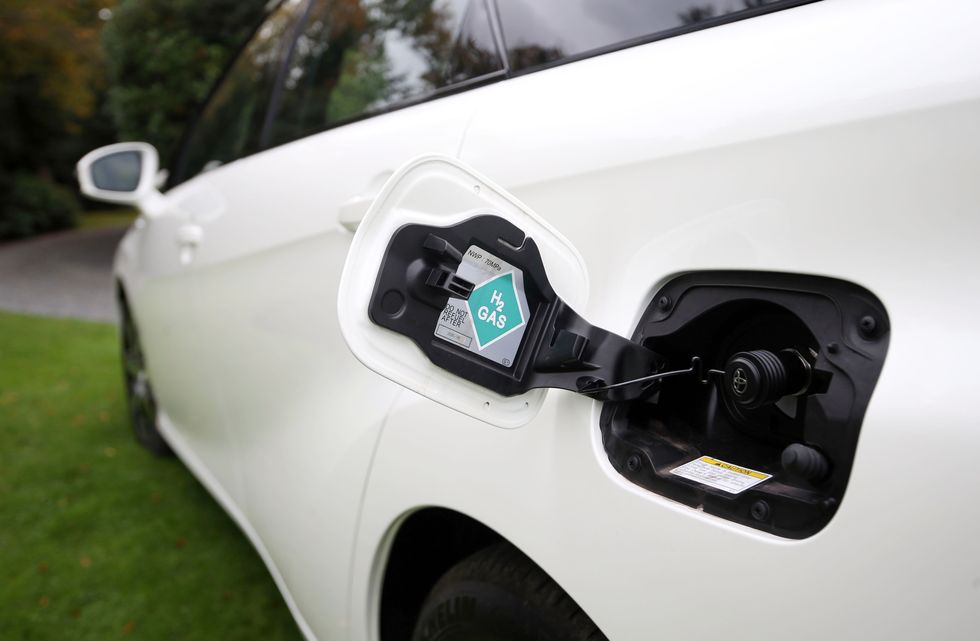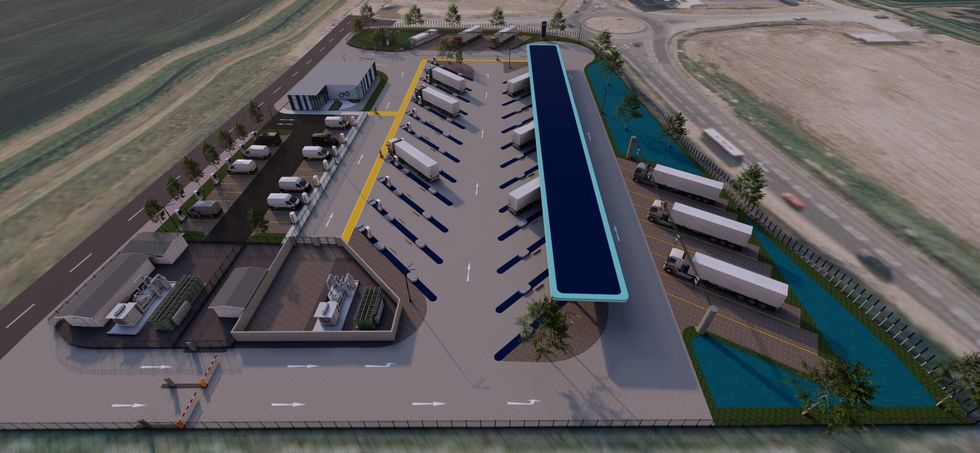Hydrogen vehicles receive huge £100million boost amid plans to develop UK-wide refuelling network
The UK could soon see a boom in investment for hydrogen vehicles as £100million in investment will be used to develop the UK’s first clean multi-energy recharging and refuelling network.
The £100million investment from Quinbrook Infrastructure Partners will support the construction of Aegis Energy facilities offering electric, hydrogen, HVO, and bio-CNG refuelling options for trucks and vans.
The company plans to establish up to 30 hubs across the country by the end of the decade, positioning itself as a leader in low-carbon infrastructure and e-mobility.
The initiative aims to address a critical gap in the UK’s transition to cleaner commercial transport, with the first station scheduled to open in early 2026.
Do you have a story you’d like to share? Get in touch by emailing motoring@gbnews.uk

The initial phase will see five stations built across strategic locations including Sheffield, Immingham, Warrington, Corby and Towcester by the end of 2027.
Aegis Energy has already secured substantial grid connections in locations across the country. Construction of the first station is set to begin this year, with doors opening to commercial vehicles in early 2026.
Each hub will be equipped to handle significant capacity and capable of simultaneously charging or refuelling more than 40 HGVs and 25 vans.
The facilities will feature comprehensive amenities for drivers, including secure truck parking, clean toilets and showers, food services and rest areas.
Transport currently represents the UK’s highest-emitting sector, accounting for 29 per cent of greenhouse gas emissions, with commercial vehicles contributing 10 per cent of the country’s total emissions.
The development comes amid growing regulatory pressure, with sales bans on non-zero emission vans and trucks set to take effect between 2035 and 2040.
Over half of van drivers currently lack access to at-home charging facilities, while depot infrastructure installation often proves impractical or unscalable for many logistics operators.
Each Aegis Energy site is expected to reduce carbon equivalent emissions by approximately 14,300 tonnes per year once fully operational.
Christopher Thorneycroft-Smith, co-founder at Aegis Energy, said: “Aegis Energy was founded to help decarbonise the largest contributors to the most emitting sector in the UK. The lack of appropriate infrastructure is typically #1 or #2 on the list of barriers for fleet operators.
“The transition will take time and play out differently for each fleet, but by providing public hubs with multiple clean energy charging and refuelling options, we’re supporting operators to choose how they want to make the transition.”
The Department for Transport’s December 2024 edition of the “Hydrogen Strategy Update to the Market” states that there are believed to be around 265 registered hydrogen vehicles in the UK, including cars, vans, heavy goods vehicles and buses.
Similarly, Keith Gains, managing director at Quinbrook, highlighted the investment potential: “Quinbrook is uniquely placed to capitalise on emerging investment opportunities that drive impactful emissions reduction in hard-to-abate sectors like transport.
LATEST DEVELOPMENTS:
- Labour urged to make 20mph speed limits the ‘norm’ in drastic move to slash car insurance prices
- Drivers call for new law changes as millions admit to being ‘temporarily blinded’ by bright headlights
- Motorists face ‘perfect storm’ amid huge risk of car accidents as traffic ‘seems worse than ever’

“Targets under the UK’s Zero Emission Vehicle mandate highlight the existing gaps in the infrastructure needed to provide accessible clean energy to transport fleets.
“This presents significant opportunities for Aegis Energy to build market-leading refuelling hubs and we look forward to supporting its growth and expansion throughout the country.”

